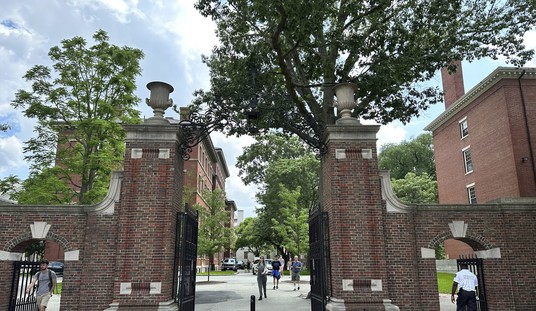Oliver Anthony went from a poor performer from the poorest area of Virginia to a nationally-known performer overnight with his song Rich Men North of Richmond. Unfortunately, with notoriety comes the inevitable onslaught of criticism.
In regard to Anthony, that's mostly manifested as upper-crust elites lecturing him on why he has no right to feel the way he does about the state the of nation, which he addressed in the lyrics of Rich Men North of Richmond. From Rolling Stone to Wikipedia, the singer and his song have been dissected in absurd ways, almost all of which completely miss the point.
Well, now it's Christianity Today's turn. On Thursday, an article titled "Oliver Anthony's Viral Hit Doesn't Love Its Neighbors." First, here's the song, and then we'll dive in.
So when I heard about Oliver Anthony’s viral hit, “Rich Men North of Richmond” (a reference to powerful elites in Washington, DC), I was excited for a song in the tradition of Johnny Cash, Pete Seeger, and Woody Guthrie—music that names the inherent dignity of the poor, lodges a protest against establishment excess, and echoes Old Testament calls for justice, like God’s condemnation in Jeremiah 5:28 of those who “have grown fat and sleek” yet “do not promote the case of the fatherless” or “defend the just cause of the poor.”
Then I heard these lyrics:
Lord, we got folks in the street, ain’t got nothin’ to eat
And the obese milkin’ welfare
Well, God, if you’re 5-foot-3 and you’re 300 pounds
Taxes ought not to pay for your bags of fudge rounds
The writer of the piece then spends well over a thousand words detailing how SNAP benefits work and her own experience with them. She then describes Anthony's lyrics as "disdainful."
Despite the number of people accessing SNAP, their experiences are not widely known among the general public—or, at least, the experience isn’t often openly discussed. That’s partly due to the negative stereotypes that accompany food insecurity and social programs more generally, like Anthony’s disdainful words about those who use welfare in a song that otherwise champions the downtrodden.
There are several ways to approach this. For one, it's not immediately clear that Anthony is attacking general welfare recipients given he probably has friends and family members who partake in them. Instead, he points to a common abuse of the system, which is the buying of junk food with SNAP benefits. Are there some people who are morbidly obese because they are disabled and otherwise can't help it? Sure, but is that the norm? No, it's not, and that's obviously Anthony's point.
But even if we assume Anthony's lyric is a general rebuke of all welfare, including SNAP, Christianity Today's critique ignores the tension in the lyric. In context, one of the biggest themes of the song is the taxation of the lower-middle class that make just enough money to not escape their national responsibilities. Does it mean Anthony does not care about the poor just because he doesn't want tax money to go to pay for junk food? I would say that's a bit presumptuous.
Regardless, no matter how one feels about the tension between taxation and welfare, the tension exists nonetheless. SNAP benefits do not exist in a vacuum. Sustainability is certainly a factor, and there is a strong argument that national welfare has done little to reduce poverty but has actually perpetuated generations of it. The best-intended plans can have the worst consequences.
Anthony's frustration is clearly that working-class individuals spend 12 hours a day working themselves to the bone only to be crushed by inflation and taxes while others take advantage of the systems they fund. That doesn't mean the poor don't have "dignity," which is a word the article uses a lot. But what about the dignity of the working class? Do Anthony and those like him matter?
That's the problem. Far too many people in places like Farmville, VA, do not feel like they matter. Instead, they feel like government excesses, including exploding welfare spending, have left those who actually pay for those programs in the dust. Whether that's a complete diagnosis or not, it's not any more loving of one's neighbors to ignore those pains. Obviously, Anthony's song comes from the heart, and those psychoanalyzing him in order to push their own narratives are not being any more accommodating.














Join the conversation as a VIP Member